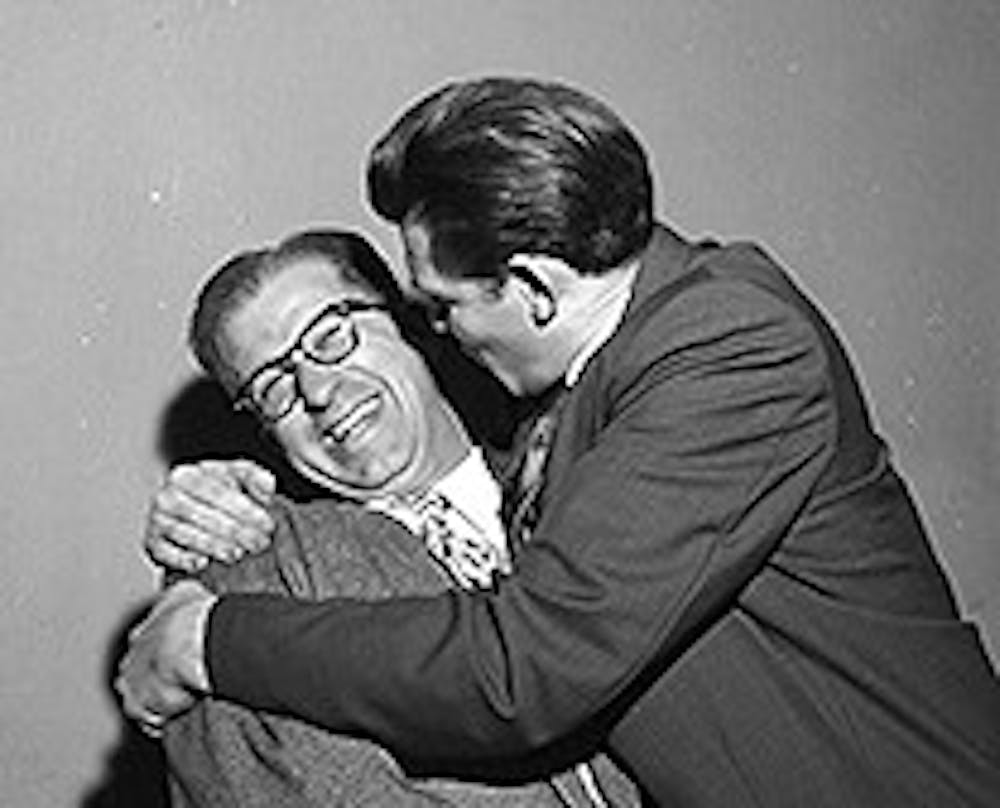“You have got to work for everyone but yourself,” Campbell wrote in a letter to the incoming editor published in the DTH on May 29, 1942. “There will be times when you want to quit, but you’ll come back even stronger.”
Campbell met his wife, Dudley Campbell, in the Carolina Coffee Shop.
Jones said Campbell’s best friends were from UNC. One of his friends, football player Charlie Justice, served as Campbell’s best man at his wedding.
Some of Campbell’s friends included Andy Griffith, Pulitzer Prize winner Horace Carter , basketball player George Glamack and singer John Loudermilk.
In 1951, Campbell started Colonial Records, a record company that produced at least four albums. He started the company with the royalties he earned from recording a song about Justice in 1949 entitled “All the Way Choo Choo.”
The company’s big break came when it recorded “What It Was, Was Football” by Andy Griffith, which sold 50,000 copies regionally before Campbell sold the rights to the song to Capitol Records.
The record company gained more success after Campbell recorded songs by George Hamilton IV and Loudermilk. The company stopped making new records in 1965.
In 1954, Campbell bought The Chapel Hill Weekly, and he turned it into a daily newspaper in 1972. He served as president and publisher of The Chapel Hill Weekly and The Chapel Hill Newspaper from 1954 to 1987.
Campbell continued to be a dedicated UNC fan throughout his life.
Jones said he lived and breathed Carolina. She said she grew up tailgating and going to UNC sporting events.
She said the angriest her father ever was at her was when her wedding day was on the same day as a UNC-Duke football game.
“It was more important to walk me down the aisle but he said, ‘You couldn’t have picked another day?’” Jones said.
To get the day's news and headlines in your inbox each morning, sign up for our email newsletters.
Campbell learned early that being a journalist and businessman could make him an enemy of some people. He found this out when he worked at The Daily Tar Heel.
“You’ll come to know what it means to be cussed and discussed by a majority of the students,” Campbell said in the letter.
Jones said her father was either loved or hated.
“He was authentic and he fought for what he believed,” Jones said. “He would never satisfy to be mediocre or middle ground. He was willing to stick his neck out for people.”
Campbell helped raise money so the nearly bankrupt Chapel Hill-Carrboro YMCA could pay its mortgage and stay open. He also helped raise money to buy bulletproof vests for police officers. Jones said her father always wanted to help people.
“The greatest lesson I ever learned from him was whenever you reach forward, always remember to turn around and reach back,” Jones said.
city@dailytarheel.com


